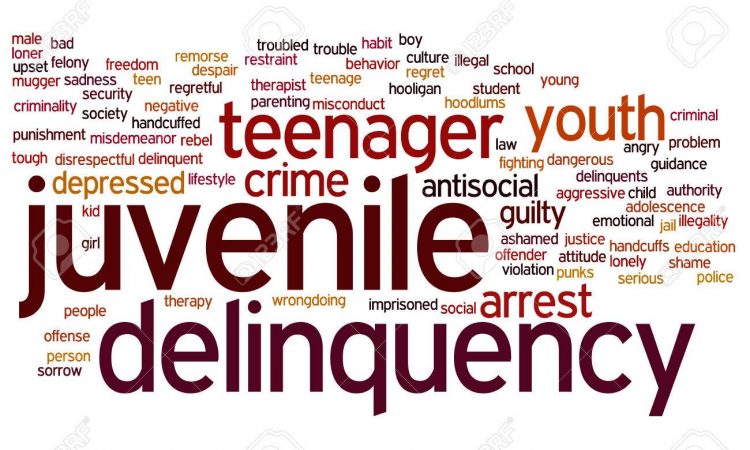
Unisha Aryal
Childhood is the delicate stage of human life. Children are physically, mentally, morally, immature and sensitive. Juveniles are the young people who are physiologically and psychologically immature or underdeveloped. Juvenile delinquency is the involvement of minor, normally between the ages of 10 and 18, in illegal behavior or activities. It is also the behavior of a minor that is marked by criminal activities, persistent antisocial behavior or disobedience which are unable to control. Juvenile delinquents is also known as “child in conflict with law”, and every state has separate legal system to deal with juveniles. The term juvenile justice refers to the legislation norms and standards procedures mechanisms and provisions, institutions and bodies especially for juveniles delinquents. It just not only deals with the treatment of children in conflict with laws but also includes policies to address the root causes of delinquents and implement measures to prevent it. Restorative justice is the main crux of juvenile justice.
Unlike adults juvenile lack social awareness and their conscience is not developed. In some cases this blends with medical conditions which results is delinquency. Juvenile’s brains are not fully mature or functions in a way that make themsusceptible to risk-taking behavior. Hence the juvenile system intents to reform and rehabilitate delinquents because the juvenile didn’t know the gravity of their action. The frequent posited objectives of the justice system are to hold delinquents liable for doing wrong and to reduce crime in the society but as mentioned the commission of illegal act by them has different circumstances. Restorative justice system also aims to reform and reestablish them in society. The sensitive issue is that there is more challenge to reestablish juveniles in society then for the adults. Though court does not send them to prison or jail but reformation home is also not good because there is very less reformation house. We all know law in book and law in action are different.
The International community has also established guidelines and rules to promote the rights of a juvenile. In addition, to improving the treatment of juvenile delinquents, the need exists to be establish a system that will assist juveniles to reintegrate into the community upon their release. For that purpose, it is important that restorative justice policies, procedures and programs be developed to promote the rehabilitation of delinquents, the best interest of the victims. In various countries, there is law ensuring special treatment, education and welfare of juvenile delinquents. Juveniles are not well informed of many things. Many of them commits crime because of their various problems like lack of education, lack of socio-economic status, careless parents, biological mental illness and peer pressure. For this they cannot be sent to prison rather they are sent to reform home to help them overcome the problems and the guilt of act. When being in a reform home, the every rights of children must be protected. Article 28 of the UN Convention on the Rights of the Child defines education as a right of all children and requires that primary education be compulsory and available free to all. Education is an inseparable part of a development of a child, under whichever circumstances they find themselves.
Recent years there have been public and academic interest in criminality and mental health, with attention often focused on antisocial behavior by children and adolescents. The scale of the problem of juvenile delinquency has provoked mixed responses from governments and the media across the world, which calls for improved rehabilitation and support for juvenile delinquencies competing which voices advocating more punitive approaches. In some countries a ‘welfare’ model prevails, which focuses on the need of the child, diagnosis, treatment and more informal procedures, whereas other countries favor a ‘justice’ model, which vehemence accountability, punishment and procedural formality. Reintegration and transition strategies should be the focus of correctional policy, rather than the lengthy confinement in state training schools with minimal supervision upon release. Juvenile delinquents receive intensive pressure while they are remanded and during their transition to the community but when they are under community supervision,they would benefit in such areas as family and peer relations, educations, jobs and mental health benefit
Children are easily targeted for adult oppression because of their lacking in power. Social support is always needed in human’s life and it is essential when he/she is in stress. And, there must be friendly relationship to prevent the person from stress also not to do offense. There must be friendly relationship to protect the juvenile from mental pressure and other irritations. Therefore there must be reestablishment of juveniles in society if they are to be completely reformed. The reestablishment in society includes providing them basic needs of life and most importantly education and skill to be able to earn and develop independency gradually. The juveniles also are to be provided proper mental health care because in many cases biological factor has been found cause of delinquency. The reestablishment process may not always include family because in some cases families are found to be source of children’s delinquent behavior. The reestablishment consist at first the reformation of juvenile in order to make him no threat and acceptable to society. The removal of stigma from reformed juvenile by creating awareness that a delinquent at child phase is not a criminal for life or by hiding children’s history of delinquency. Then the juvenile must be given education, skill and other facilities so he can live his/her life with dignity. The role of government or law is not only to send them in reformation home but also to re-establish them in the society.

